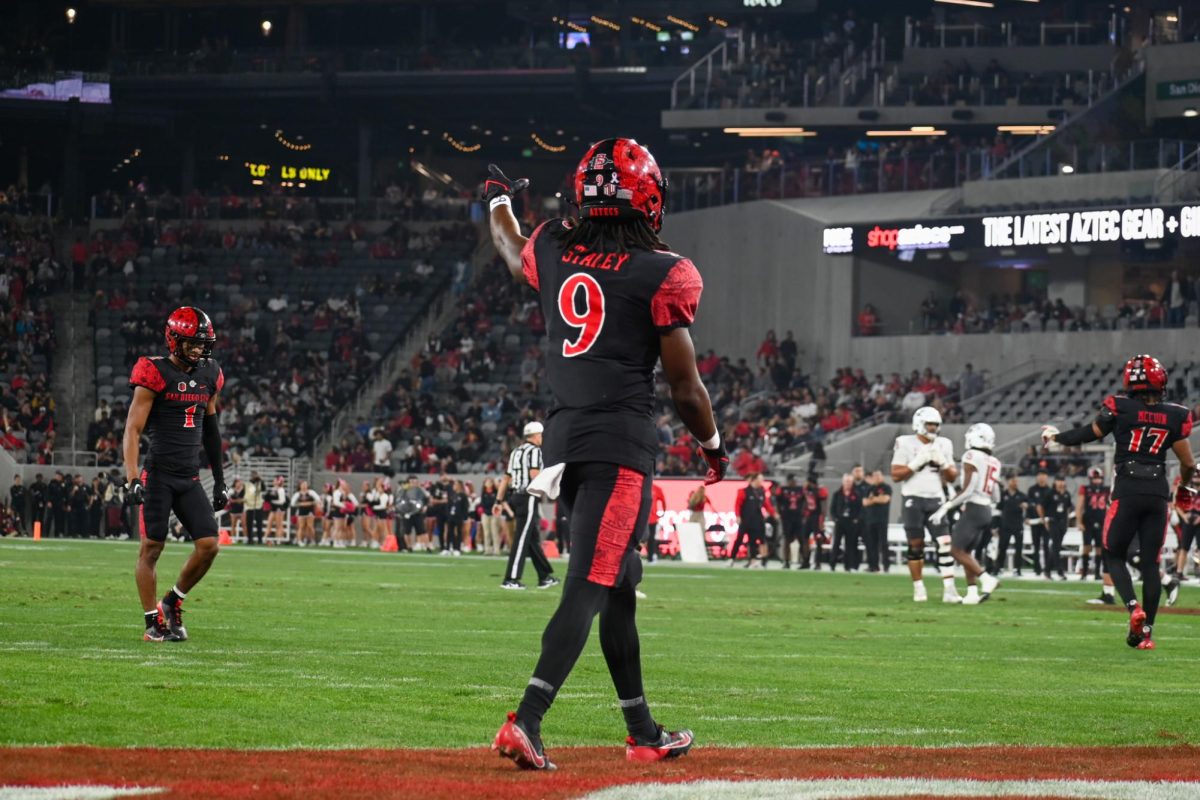Feminism has spearheaded white women like Alice Paul, Simone De Bouvier and even recently, Emma Watson, as faces of the feminist movement. However, do their struggles encompass the struggles of all women?
The question itself should tell an answer that is evident. As multiple African American women here at San Diego State testify, mainstream feminism doesn’t entirely speak to all women because it alienates the role race plays in shaping their experiences. By concentrating only on a niche of women’s inequalities, feminism in many ways separates women rather than empowering them.
It is crucial to note all forms of oppression, racism, classicism and sexism, are inextricably linked. The experiences of being both African American and a woman cannot be understood as independent of each other because they constantly reinforce each other.
As assistant professor of Africana studies, Antwanisha Alameen-Shavers, explained the historic differences in how white women and African American women experience life is a great representation of the shortfalls of feminism.
“Starting with the 1600s, white women were considered the property of their husbands but were still viewed as humans in a legal sense, protecting them from rape,” Alameen-Shavers said.
“African American women were seen as hypersexual animals that could not technically be raped due to their enslavement and purported lasciviousness,” Alameen-Shavers said. “Thus, from the founding of this country, white women, though oppressed, were legally human beings while African American women were chattel — vast difference.”
The legacies of this double oppression persist today, dramatically impacting a African American woman’s life chances. A simple example of this double standard of oppression is the wage gap evident in contemporary society. Mainstream feminists address the fact that women make 78 cents to every dollar of their male counterpart — but they fail to address how black women make even less at 64 cents. African American women are also more likely to be harassed by the police and less likely to get job interviews while being equally qualified.
However, these unspoken ways white women benefit from their race, often go ignored. They go ignored because those who enjoy privilege, aren’t aware of it. This racial privilege we hear so much about in society doesn’t stop at the doors of the feminist movement.
“Mainstream feminism has not done the best job dealing with the issues that impact women of color,” Alameen-Shavers said. “It fails to speak to my needs because it fails to adequately address my reality. Though African American feminist scholars, such as Patricia Hill Collins or Bell Hooks, have contributed to reshaping the cannon by making it inclusive of our needs — these figures are hardly part of the mainstream.”
Beyond legal oppression, African American women are often subject to negative stereotypes, stereotypes that are not imposed on white women. Joi Brown, a public relations junior, remembers a time in high school when she attempted to respond to an ignorant comment by a white classmate — comments that create inequality within an equality movement.
“Before I could even speak, he retorted, ‘Whoa Joi, don’t get all Compton on us,’” Brown said. “Just from looking at me he already stereotyped me and made up his mind about how he wanted to perceive me.”
“Little does he know that I came from the same city, attended the same high school and got the highest grade in the class,” she said. “But, he assumed that I was from the ghetto. I just don’t believe a White woman would be stereotyped that way.”
The notions that African American women are loud, rude, unpoised and lacking grace affect many African American girls on a daily basis. Journalism and media studies sophomore, Ozodi Onyeabor, described this daily struggle.
“Because of these stereotypes, I change my behaviors,” Onyeabor said. “I watched how I do my hair, and I stifled my voice all to prevent being the basic opinionated, angry African American woman,” she said. “But if a white woman exudes an inch of my attitude, it’s feisty and powerful.”
These experiences should serve as realizations of various subjective experiences that causes a divide among women — a realization that must be addressed. She is constantly reminded of her racial status from the moment she steps outside. This lack of solidarity of women won’t strengthen feminism; in fact, it’s creating a further divide.
“Why do we let this insecurity complex come between empowering each other,” Onyeabor said. “I really don’t feel like being a African American woman is the same experience as being a white woman. It doesn’t matter which country. All women are beautiful, yes, but I think African American women are especially strong. We all came from African Eve and we are all our own queens.”
These perspectives should be formulated within the feminist rhetoric. Feminists need to do a better job at addressing the injustices that women of color uniquely face. Ironically, the inequalities of women don’t stop at the glass ceiling.









